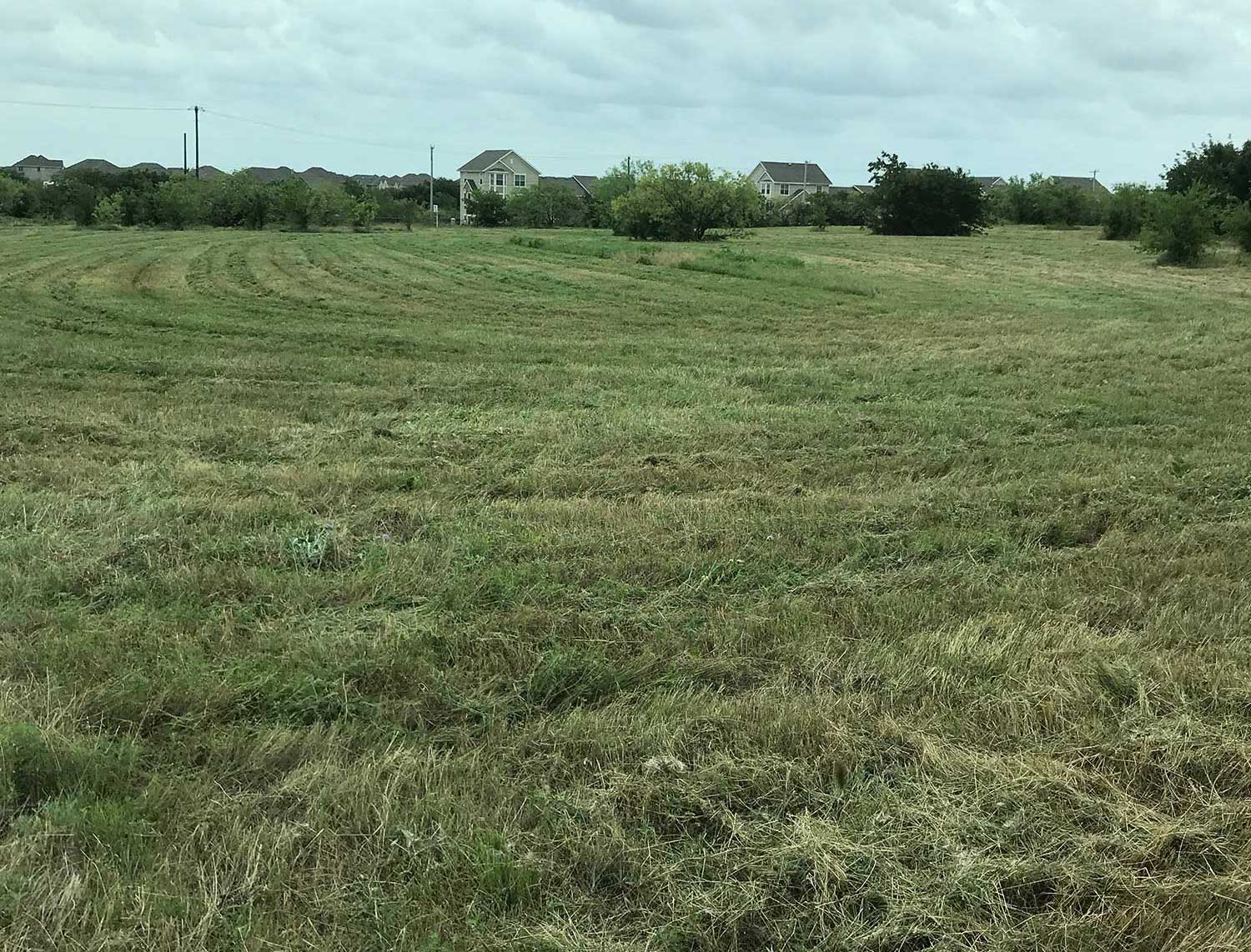Mowing Large Fields: Do It Yourself or Hire it Out?
Anyone who owns acreage and is facing mowing large fields of grass faces this question: do it yourself or hire the job out to the professionals?
We are going to do our best to give an unbiased and professional answer to this question. We are Keith’s Tractor Mowing, serving the Greater Fort Worth area with affordable acreage mowing. When it comes to big mowing jobs, nobody does it better in Fort Worth than Keith’s Tractor Mowing. Call us for a job quote.
Mowing large fields: What constitutes a large field?
This is a purely subjective question and a purely subjective answer. For this article, we will define a large field as an acre or more, with an acre being approximately the size of a football field. That size seems to be a psychological limit for more people mowing with a residential lawn mower. Anything more than that sucks up way too much time, and for a famer, or for a rancher, or even just for a property owner who has a job which keeps them quite busy, spending hours mowing something larger than an acre is simply not reasonable.
The pros and cons of doing it yourself.
Doing large lot mowing yourself saves money. Anytime a DIY project saves you the money it would cost to hire out, it’s a good thing financially . . . to a limit. If you are a busy person, and your spare time is limited, or you already don’t spend enough time with your family, those two or three hours of mowing an acre might not be worth the savings.
There is the satisfaction factor, of course, for doing the job yourself, and there is the immeasurable pro of being outdoors and enjoying the Vitamin D that sunshine provides.
One final con to doing it yourself has to do with safety. Mowing a large field usually requires operating equipment most homeowners are not trained on. It’s one thing to spend three hours mowing with a residential walk-behind mower; it’s quite another to mow with a riding lawnmower or a tractor mower. The larger the equipment the more the danger factor.
The pros and cons of hiring the job out to the pros.
The con of hiring a job out is most definitely the cost. Is the cost too high? We cannot answer that question for you. Generally, and this is an industry standard, you are looking at between $75-$100 per hour for commercial lawn mowing services. An acre of land can be mowed, using a tractor mower, in less than an hour. Is that price worth paying, or are you determined to save money and do it yourself?
The pros of hiring out are this: the job will be done correctly and efficiently, and you will free yourself up to do things which are much more important to you, like playing catch with your kids.
A final word about Keith’s Tractor Mowing.
Thankfully, we don’t have to make this tough decision for you. However, if you are in the Fort Worth area, and you want the pro’s pro, call Keith’s Tractor Mowing. For acreage mowing, pipeline mowing, ranch mowing, or citation mowing, we handle the big jobs so you don’t have to.
